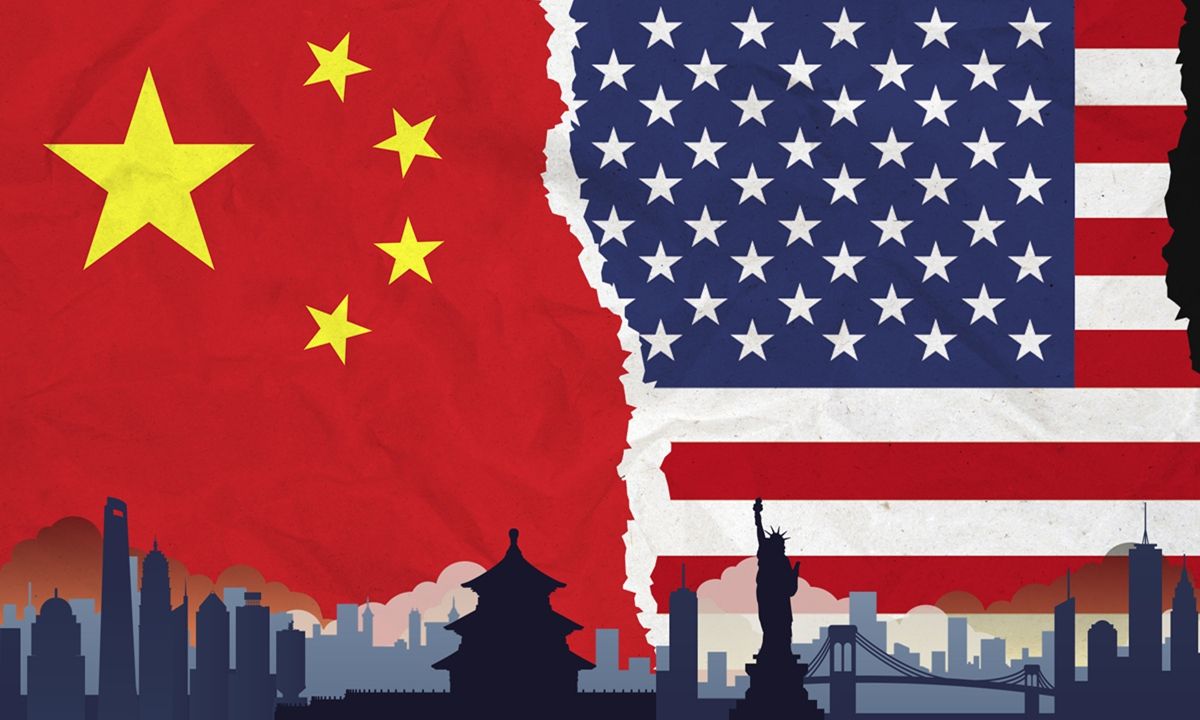(Source:Global Times,2024-09-01)

China-US Graphic: GT
The US government's decision to once again postpone the announcement of a final determination for additional tariffs on a wide range of Chinese products, including electric vehicles (EVs), fully reflected the growing opposition from US businesses and industries, Chinese experts said on Sunday.
As the US continues to intensify its crackdown against Chinese products, the costs for US businesses and consumers will continue to increase, which will in turn translate into growing criticism of the protectionist US actions. Washington should stop politicizing trade issues and focus on addressing disputes through ongoing talks, experts noted.
The US Trade Representative's Office (USTR) was scheduled to announce the final determination for the hefty tariffs last week, but on Friday it delayed the announcement again, Reuters reported on Friday.
A USTR spokesperson was quoted by Reuters as saying that it would make the final determination public "in the coming days."
This was the second time that the US delayed the announcement. At the end of July, the USTR also announced that the implementation of the tariffs, which had been scheduled for August 1, would be delayed for at least two weeks.
The postponements came as the USTR faces growing criticism from US businesses and industries, which are worried about additional costs resulting from the tariffs. Some EV battery makers, including Ford Motor Co, urged the USTR to reduce the proposed 25 percent tariff on graphite used in battery anodes, according to Reuters.
"I think the postponements are due mainly to the opposition from the US domestic industries," Xin Qiang, an expert on US studies at Fudan University, told the Global Times on Sunday.
Xin said that many US businesses will still have to buy the products from Chinese producers even if the US government imposes additional tariffs, but "only at higher costs."
He said that the US government has previously ignored the opposition of US domestic industries in implementing additional tariffs on Chinese products. However, "the opposition toward the planned tariffs on a new batch of Chinese products has grown louder, which is having a greater impact on the US government's decision-making, because it faces the risks of economic losses if it continues to crack down on China."
Chinese officials have also repeatedly criticized the US crackdown against Chinese businesses and products, as the two sides continue to hold talks.
On August 27 and 28, Wang Yi, member of the Political Bureau of the Communist Party of China Central Committee and director of the Office of the Central Commission for Foreign Affairs, held talks with visiting US National Security Advisor Jake Sullivan. Chinese and US trade officials also plan to hold a meeting in North China's Tianjinon September 7, the Chinese Commerce Ministry announced on Thursday.
Zhou Mi, a senior research fellow at the Chinese Academy of International Trade and Economic Cooperation, told the Global Times on Sunday that the ongoing talks are conducive for the two sides to exchange views on issues of mutual concern and at least try to find ways to address policies that affect bilateral and even global trade.
Xin noted that Chinese officials repeatedly raised serious concerns over the additional US tariffs during recent talks.
"If the US government hopes to stabilize China-US ties, imposing additional tariffs will only cause further damage," Xin said.



